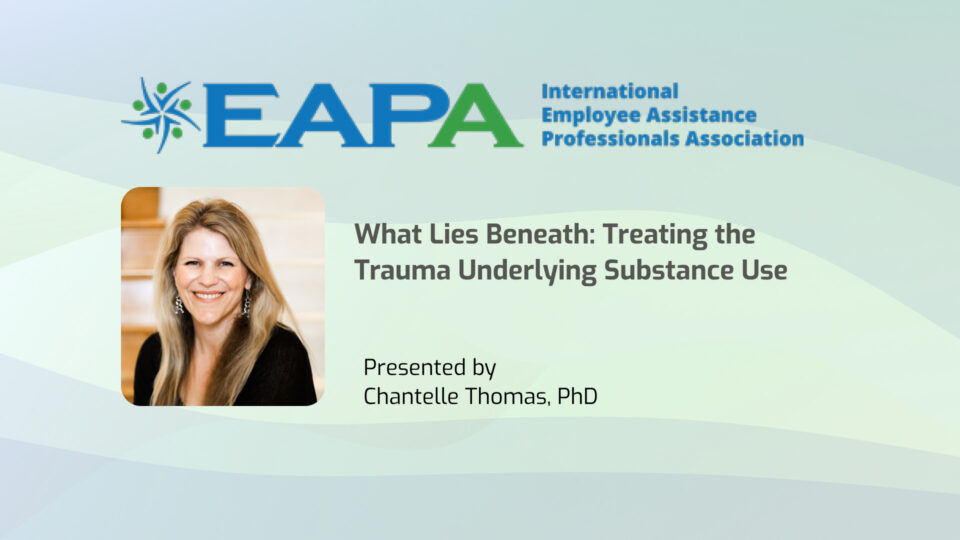
What Lies Beneath: Treating the Trauma Underlying Substance Use
Information
Recorded
-
-
Learning Objectives
Participants will be able to:
-
Define at least 2 clinical barriers and at least 2 treatment assumptions uniquely manifesting for co-occurring substance use and trauma treatment.
-
Examine 2 ways to strengthen the therapeutic alliance from an attachment-based lens that emphasizes resiliency and de-pathologizes the concept of "resistance" for dually-diagnosed individuals.
-
Summarize the range of clinical strategies and novel, somatic-based interventions (KAP, SE) that promote safety, support emotional intimacy, and invite exploration of parts of self that were alienated through trauma/substance use.
Educational Goal
The educational goal of this workshop is to provide clinicians with a comprehensive understanding of how to navigate the complex interplay between trauma and substance use disorders by exploring therapeutic approaches that strengthen the therapeutic alliance, address clinical barriers, and utilize experiential, somatic, and novel interventions to promote healing.
Description
For many individuals suffering from substance use disorders, making the decision to enter treatment is a challenging process requiring a great degree of humility and courage. Clients often initially approach treatment with limited knowledge and perspective of what is truly required of themselves to benefit from a residential treatment setting. Not surprisingly, surrendering from their “regular lives” into an often novel and emotionally challenging therapeutic setting will elicit self-protective mechanisms. These reflexive responses can prevent both the client and the clinician from gaining meaningful access to the areas of deepest vulnerability and suffering, particularly with a trauma history. Taking a multiplicity of the self-perspective is a useful approach to assist both clients and clinicians in understanding how to collaboratively explore all aspects of what appear to be therapeutic impasses. Using the authentic therapeutic alliance and applying nuanced experiential, somatic, emotion-focused, and family systems-based approaches, can facilitate access to the “parts” of self that rely on substance use to cope.
Target Audience
- Counselor
- Marriage & Family Therapist
- Psychologist
- Social Worker
- Substance Use Disorder Professionals
Presenters

Dr. Chantelle Thomas, Windrose Recovery’s Executive Clinical Director, is a Clinical Psychologist specializing in addiction treatment, trauma, and health psychology. Windrose Recovery’s family of treatment programs includes The Manor, Positive Sobriety Institute, and Integrata. Dr. Thomas began her career as the Program Director for a dual-diagnosis addiction and trauma treatment center in Malibu, California. After receiving her PhD in Clinical Psychology, she completed her internship and post-doctoral fellowship in Health and Rehabilitation Psychology at the University of Wisconsin School of Medicine and Mental Health. While there, she gained specialized expertise in medical-surgical consultation, trauma-informed therapy, and chronic pain treatment. Through the University of Wisconsin’s School of Family Medicine, Dr. Thomas then joined Access Community Health Center as a behavioral health consultant for primary care physicians, where she innovated the development of a substance use disorder consultation clinic embedded within primary care. Dr. Thomas is also involved in clinical research trials at the University of Wisconsin School of Medicine and Public Health investigating psilocybin for various substance use disorders and other clinical indications. Her background in research-supported treatment modalities directly informs her ability to ensure the most effective interventions are incorporated into Windrose Recovery’s treatment programs.
Financially Sponsored By
- EAPA NYC Chapter